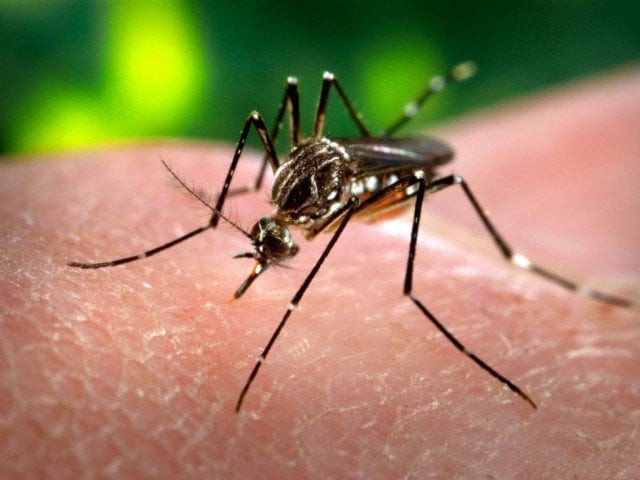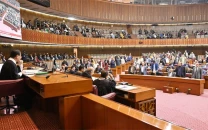Viral infection: Dengue proliferates in K-P again
Authorities might not be fully prepared to handle health scare

PHOTO: REUTERS
According to unconfirmed reports, over 1,200 people may have contracted the mosquito-borne viral infection. So far, 700 cases have been confirmed.
Apart from Peshawar, cases have surfaced in different parts of the province including Buner, Dir Lower, Upper, Mansehra, Bannu, Haripur, Kohat, Battagram, Abbottabad, Karak, and Swabi.
Khyber-Pakhtunkhwa to hire entomologists to tackle dengue
The upsurge in the most densely populated areas of Khyber Pakhtunkwa (K-P) is not entirely unexpected. In 2017, the viral disease claimed 72 lives in K-P, with over 25,000 total infected cases recorded across the province.
Dengue, a mosquito-borne viral infection, can lead to haemorrhaging, and organ failure in severe cases, and there is no specific treatment for the disease. While the deadly disease seems to be knocking at the doorstep, provincial health authorities seem unprepared to handle the latest health scare. Year after year, outbreaks have raged through the country during the annual dengue season, causing hundreds of deaths. “I don’t know why health authorities are neglecting this issue,” said one senior health official, who was part of the Dengue Response Unit (DRU) two years ago. “The situation might spiral out of their control if ignored,” he warned. During the last outbreak, he said health authorities in the province mapped ground zero and were able to find the epicentre of the disease in Tehkal, where 18,000 cases surfaced.
“We identified and encircled areas where confirmed cases surfaced, and that is how we started targeting ‘red’ areas,” he said. Apart from chasing the virus down to its origin, health authorities also launched awareness campaigns in the area, urging residents to take precautionary measures to prevent the disease.
Shifting the blame
Experts in the province believe residents are responsible for the spread of the disease, and there is a limit to what the government can do in such situations.
“Members of the community need to take charge. We have not eradicated the disease forever,” said Dr Iftikharuddin, assistant professor for Community Medicines at the Bacha Khan Medical College in Mardan.
25-bed ward opens doors to dengue patients in Chak Shahzad
Dr Iftikharuddin, who headed the team of experts to contain the mosquito-borne viral infection, in 2017 said: “I would have blamed the government if the outbreak was in other areas, but since it is in the same areas, I hold the communities responsible.”
While officials seem to be interested in shift the blame, people in the province might end up paying the price once again.
Echoing Dr Iftikharuddin’s thoughts, Provincial Health Secretary, Muhammad Yahya Akhunzada said: “the community can help overcome the situation, and so far the response has been positive.” “We are closely monitoring the situation, and I hope we will overcome the situation very soon,” the health secretary said.
Published in The Express Tribune, September 16th, 2019.






1725254039-0/Untitled-design-(24)1725254039-0-208x130.webp)












COMMENTS
Comments are moderated and generally will be posted if they are on-topic and not abusive.
For more information, please see our Comments FAQ